BOOMER
Railroads Past and Present
George M. Smerk, editor
BOOMER
RAILROAD MEMOIRS
LINDA GRANT NIEMANN
INTRODUCTION BY LESLIE MARMON SILKO


Permission has been granted for the use of a quote from Bound for Glory, words and music by Woody Guthrie. 1964 by WOODY GUTHRIE PUBLICATIONS
(BMI)/Administered by BUG MUSIC, renewed 1992. All Rights Reserved
Used by Permission
Reprinted by permission of Hal Leonard Corporation
This book is a publication of
Indiana University Press
601 North Morton Street
Bloomington, Indiana 47404-3797 USA
iupress.indiana.edu
Telephone orders 800-842-6796
Fax orders 812-855-7931
Orders by e-mail
Indiana University Press paperback edition 2011
Originally published by University of California Press
1990 by the Regents of the University of California
All rights reserved
No part of this book may be reproduced or utilized in any form or by any means, electronic or mechanical, including photocopying and recording, or by any information storage and retrieval system, without permission in writing from the publisher. The Association of American University Presses Resolution on Permissions constitutes the only exception to this prohibition.
 The paper used in this publication meets the minimum requirements of the American National Standard for Information SciencesPermanence of Paper for Printed Library Materials, ANSI Z39.48-1992.
The paper used in this publication meets the minimum requirements of the American National Standard for Information SciencesPermanence of Paper for Printed Library Materials, ANSI Z39.48-1992.
Library of Congress Cataloging-in-Publication Data
Niemann, Linda.
Boomer : railroad memoirs / Linda Grant Niemann ; introduction by Leslie
Marmon Silko.
p. cm.
Originally published: Berkeley : University of California Press, 1990.
ISBN 978-0-253-22283-1 (pbk. : alk. paper) 1. Niemann, Linda.
2. Women railroad employeesUnited StatesBiography. I. Title.
HD6073.R12U66 2011
385.092dc22
[B]
2011005916
1 2 3 4 5 16 15 14 13 12 11
For
Angus
CONTENTS
by Leslie Marmon Silko
ACKNOWLEDGMENTS
I WOULD LIKE to thank my sister, Dorothy Mohr, who used her court-reporting skills to help me edit this book. I would also like to thank the following friends who read and commented on the manuscript: Angus Fletcher, Carter Wilson, Sheila Hough, and Betty Gardiner.
My experiences as related in this book are fact. The main characters are literary creations, fictional in certain respects and colored in others by the people I knew and worked with. The railroad is itself.
INTRODUCTION
BOOMER is an American classic, a work of creative non-fiction that is a delight to read. The writing is distinctivevivid and conciseand its greatness lies in the unique narrative voice that the author created to tell her story. This narrative style came in large part from the railroad work itself. On the railroad, telling stories not only got the workers through the long stretches of distance and time, the stories were often cautionary tales integral to the railroad workers survival in a dangerous workplace. Railroad storytelling didnt mince words and it had to include enough details so listeners knew what to do and what not to do in order to stay alive. Finally, as in any dangerous pursuit, humor was a necessity to preserve the workers sanity while they endured the risks.
The great thing about this book is you can visualize everything described. From page one you know the narrator is going to take you places youve never beento the freight yard surrounded by apple orchards and artichoke fields that swept in painterly rows down to the dunes and riptides waiting in the bay. It was cool for July, with that wet smell of salty fog and rotting produce in the packing sheds of the cold storage plants (p. 1).
The authors sense of humor about herself and other railroad workers is evident on the first page too: I drove my fifty-six Chevy with its four bald tires into the parking lot behind the depot. There were rows and rows of pickups, RVs, Chevy Suburbans, and the beat-up luxury car heaps that the brakemen used as away-from-home cars. It was solid American steel (ibid.).
Boomer moves effortlessly, weaving threads of many stories throughout: it is a chronicle of the authors struggle to find meaning in her life and to stop drinking; it is the story of how one woman went to work on the railroad and found a voice all her own, a voice that made her a wonderful unique writer. Boomer also tells the story of the decline and loss of the craft of railroading, and the struggle of the railroad workers with the railroad companies at the end. On page two, the author reveals the way she viewed her drinking:
On my way back to Santa Cruz I stopped by a liquor store for two club cocktails for the road. It was a habit of mine, and I didnt think anything about it. Being a drug user, I thought of drinking as basically legal. My whole scale of judgment was based on what happened to you if you got caught. Drinking and driving was pretty bad, but not as bad as if you got caught with dope in the ashtray or lids of pot in the trunk. (pp. 23)
The first time I read Boomer I was so focused on learning about the railroad work and the authors relationships with the other rails that I didnt notice, or maybe I didnt want to face, what a struggle it was for the author to get sober. The beauty of the storytelling here is the balance between the personal history and the larger history of the railroad. Sobriety doesnt come easily and requires the convergence of her mothers slide into dementia and the demands of railroad work to focus the authors attention on her drinking.
The author, who used her nick-name Gypsy to tell her story, had a Ph.D. from Berkeley but no teaching job. She enjoyed the laidback comforts of Santa Cruz with its white-collar teaching community and genteel hippie life. Shed been hanging out with interesting, witty people, smoking dope, drinking winedrinking lots of winebut she felt disconnected and adrift. Then she saw an ad from the Southern Pacific Railroad; they were hiring brakemen. Something clicked for Gypsy. It was a drastic move, and she knew it. The first time I read Boomer I thought, Oh nodont do that, Gypsy! Try something else!
Boomer isnt about upward mobility to riches and power; quite the opposite. Gypsy left behind the safe clean life of Santa Cruz for the danger and grit of the blue-collar railroad workera mans world if ever there was such a place. She was determined to find a meaningful place for herself in this world or die trying. Unlike academia with its posturing and piles of paper, the railroad played a fundamental role: We moved stuff people used to build their houses, get from place to place, and to put on their table. I felt part of it all, whatever it all was-something I had never felt before (p. 7).
Gypsy also embraced the dangers of railroading to make herself pay more attention to each moment of her life. The stakes were life and limb. At first, it was a lot of pressure. You thought, What if I see it wrong, that light moving a half mile down the crowded track. What if I crush Maureen? (p. 11). But early on it is Maureen who almost kills Gypsy with a miscalculation of the speeding box cars. The box cars weighed tons and much of the work was done at night in the dark. A brakeman and her crew had to work together with precision or one of them might be killed or maimed or box cars and locomotives derailed.
Next page

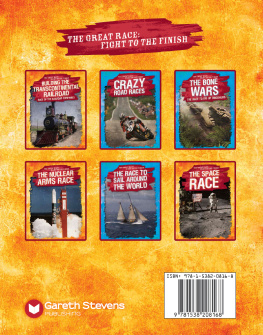

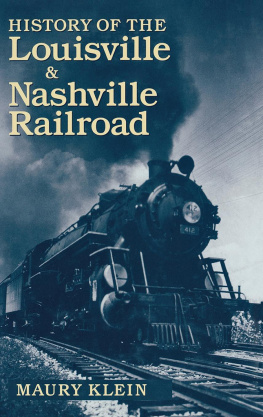
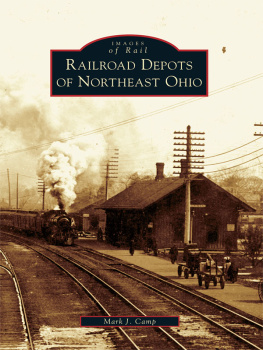
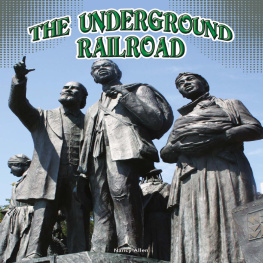
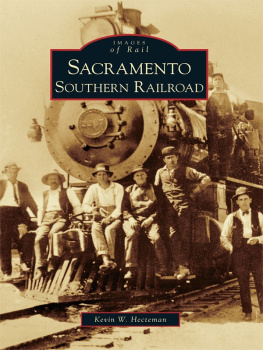
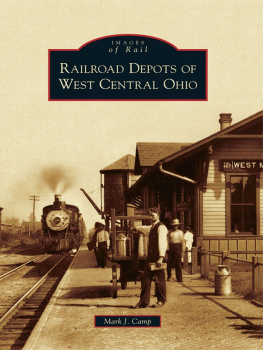


 The paper used in this publication meets the minimum requirements of the American National Standard for Information SciencesPermanence of Paper for Printed Library Materials, ANSI Z39.48-1992.
The paper used in this publication meets the minimum requirements of the American National Standard for Information SciencesPermanence of Paper for Printed Library Materials, ANSI Z39.48-1992.